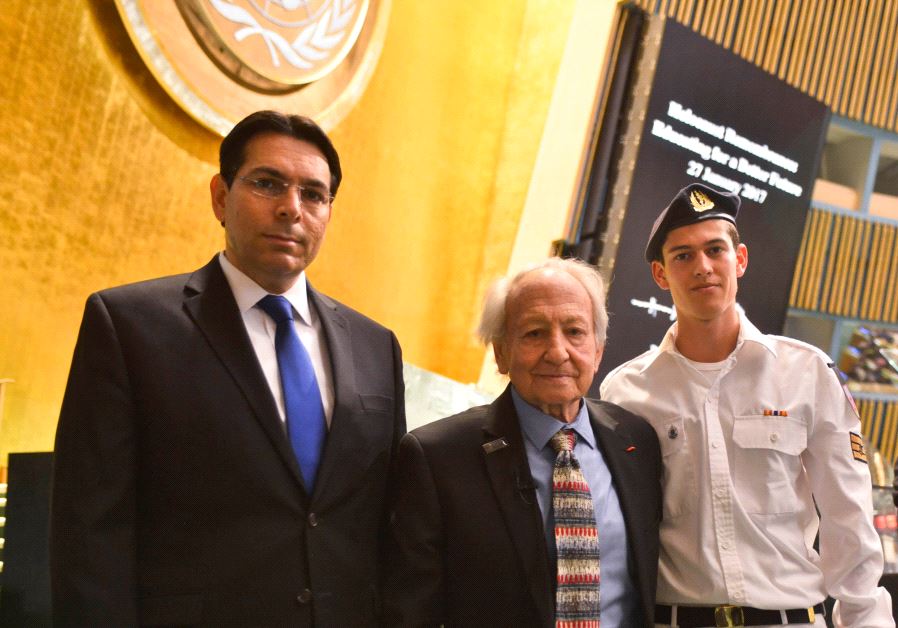UN chief ‘concerned’ by widespread discrimination
72 years after Auschwitz liberation, Guterres says stereotyping of Muslims is deeply troubling
 Noah Klieger in the UN General Assembly Hall with his grandson Yuval and Ambassador Danon(photo credit: HAREL RINTZLER)Updated:
Noah Klieger in the UN General Assembly Hall with his grandson Yuval and Ambassador Danon(photo credit: HAREL RINTZLER)Updated: